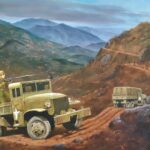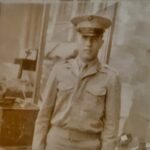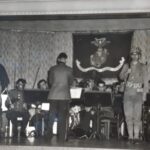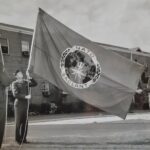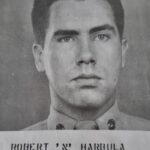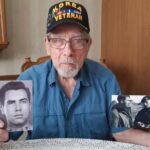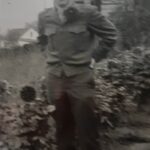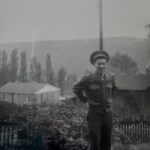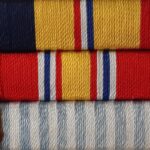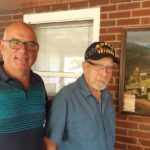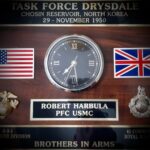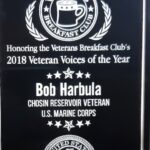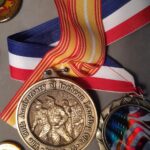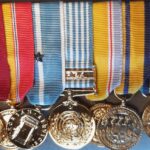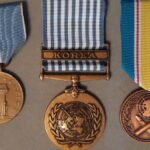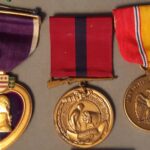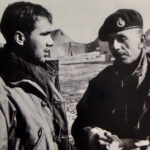Bob Harbula was born January 2, 1931 in Pittsburgh, Pennsylvania. He grew up in a working class area there, and he expected to work on the railroad, as had his father and grandfather. As a young boy he saw the Second World War unfold all around him, and he was inspired by the stories of bravery and heroism. He was confused at the outset of the Cold War, wondering who the enemy was, but Bob opted to join the Marines in any case. He was then off to Parris Island for boot camp, where they turned Bob into a Marine. His next stop was “8th and I”, the Marine base in Washington D.C.: Marines at this base guarded the president and performed all kinds of ceremonial and security duties, including at Shangri La (later Camp David). It was during this time that the Korean War broke out, and Bob was one of the first Marines to volunteer. He was sent to Camp Pendleton, and then onto Japan. Then it was on to Korea itself, where Bob was involved in MacArthur’s celebrated landing at Incheon. The battle was a success, with Bob and his fellow Marines quickly gaining a foothold and moving inland towards Seoul. They won the battle but were removed from the front and taken all the way around the peninsula to Wonson, where they eventually made an unopposed landing. They moved inland; in one instance Bob was involved in a truck convoy, which was transporting North Korean prisoners. On the return trip they were ambushed and came under heavy fire; rather than return to the trucks at the rear of the convoy, Bob crawled forward and tried to help his wounded comrades. He also instructed the driver to turn around and get out of there, with Bob memorably grabbing a 30 cal machine gun at his hip and firing at the North Koreans as they made their way out. That action led to Bob becoming a squad leader, a role he would play in the fateful battle at Chosin Reservoir in November 1950. American and British forces had moved into the area when Chinese forces pinned them down in the cold and barren landscape, forcing the Americans and British to fight their way out of the forbidding terrain. Bob and the rest of George Company fought valiantly in those hills, but they were overwhelmed by the waves of Chinese soldiers. Bob did manage to get out and he rescued a wounded comrade in the process; Bob ruptured his Achilles tendon in that process, and he was evacuated, eventually making his way to an army hospital in Japan. He recuperated and returned to Korea just over a month later, and went on to become involved in the Chinese 1951 Spring Offensive. The Marines held onto Hill 902 during that time, securing a key position that the Chinese were attempting to take. His time to ship out came in June 1951, and Bob returned home and decided to leave the Marines. It took him some time to readjust to civilian life, but Bob did it, going on to marry and raise his own family. Bob was interviewed by Scott Masters in August 2023, at his home in Pittsburgh – we thank the Veterans’ Breakfast Club for facilitating this interview.
Videos
Click next video below to keep watching
- 1. Early Memories; Growing up during World War Two
- 2. The Cold War; Joining the Marines
- 3. After Parris Island; 8th and I
- 4. Korea
- 5. From Japan to Incheon
- 6. On the Road to Seoul
- 7. First Combat
- 8. The Convoy
- 9. The Convoy, Part 2
- 10. November 1950
- 11. November 1950, Part 2 - Chosin Reservoir
- 12. Back into Action
- 13. Shipping Out; Back in the USA
